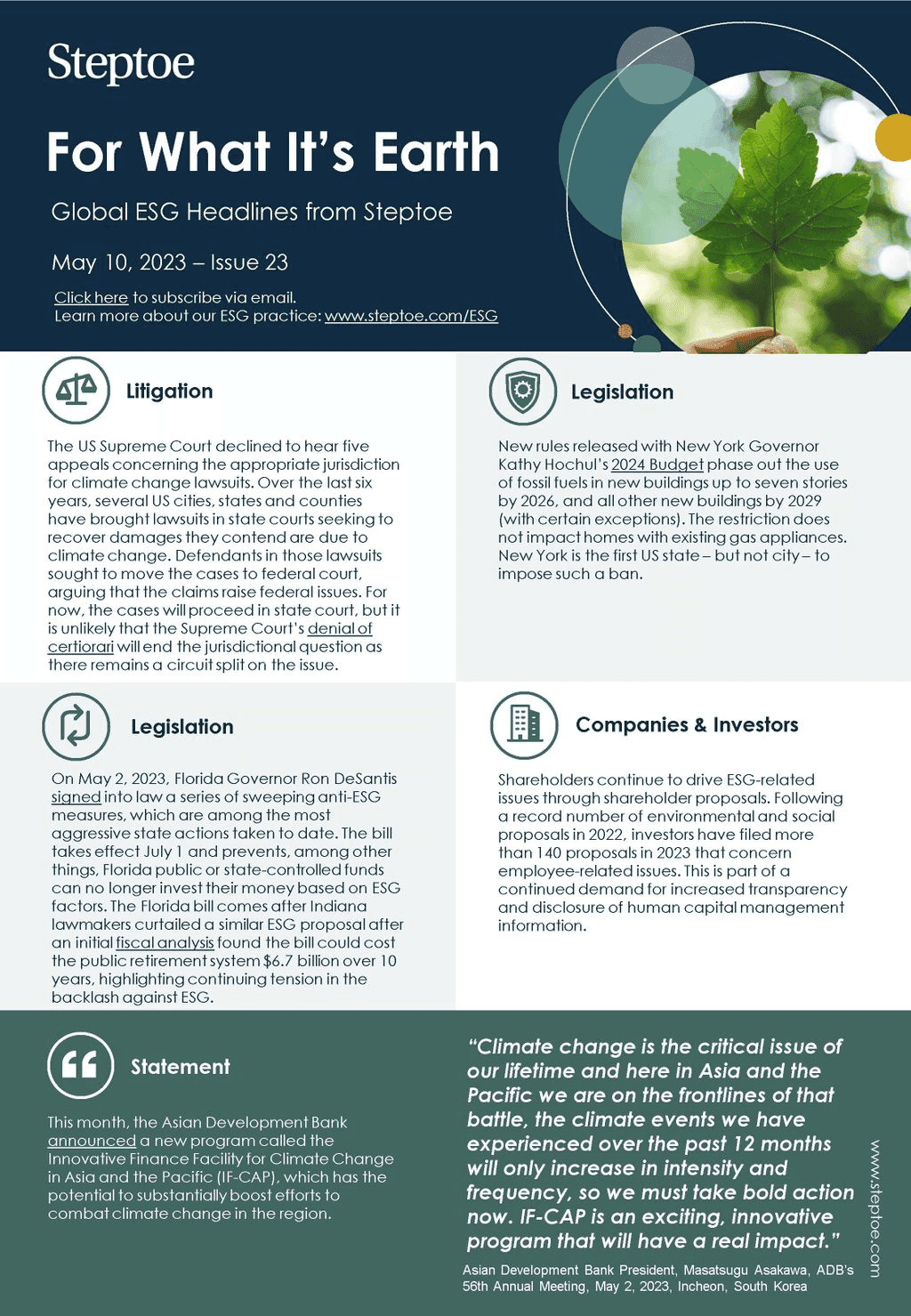Overview
Litigation
The US Supreme Court declined to hear five appeals concerning the appropriate jurisdiction for climate change lawsuits. Over the last six years, several US cities, states and counties have brought lawsuits in state courts seeking to recover damages they contend are due to climate change. Defendants in those lawsuits sought to move the cases to federal court, arguing that the claims raise federal issues. For now, the cases will proceed in state court, but it is unlikely that the Supreme Court's denial of certiorari will end the jurisdictional question as there remains a circuit split on the issue.
Legislation
New rules released with New York Governor Kathy Hochul’s 2024 Budget phase out the use of fossil fuels in new buildings up to seven stories by 2026, and all other new buildings by 2029 (with certain exceptions). The restriction does not impact homes with existing gas appliances. New York is the first US state – but not city – to impose such a ban.
Legislation
On May 2, 2023, Florida Governor Ron DeSantis signed into law a series of sweeping anti-ESG measures, which are among the most aggressive state actions taken to date. The bill takes effect July 1 and prevents, among other things, Florida public or state-controlled funds can no longer invest their money based on ESG factors. The Florida bill comes after Indiana lawmakers curtailed a similar ESG proposal after an initial fiscal analysis found the bill could cost the public retirement system $6.7 billion over 10 years, highlighting continuing tension in the backlash against ESG.
Companies & Investors
Shareholders continue to drive ESG-related issues through shareholder proposals. Following a record number of environmental and social proposals in 2022, investors have filed more than 140 proposals in 2023 that concern employee-related issues. This is part of a continued demand for increased transparency and disclosure of human capital management information.
Statement
"Climate change is the critical issue of our lifetime and here in Asia and the Pacific we are on the frontlines of that battle, the climate events we have experienced over the past 12 months will only increase in intensity and frequency, so we must take bold action now. IF-CAP is an exciting, innovative program that will have a real impact."
Asian Development Bank President, Masatsugu Asakawa, ADB's 56th Annual Meeting, May 2, 2023, Inceheon, South Korea
This month, the Asian Development Bank announced a new program called the Innovative Finance Facility for Climate Change in Asia and the Pacific (IF-CAP), which has the potential to substantially boost efforts to combat climate change in the region.


